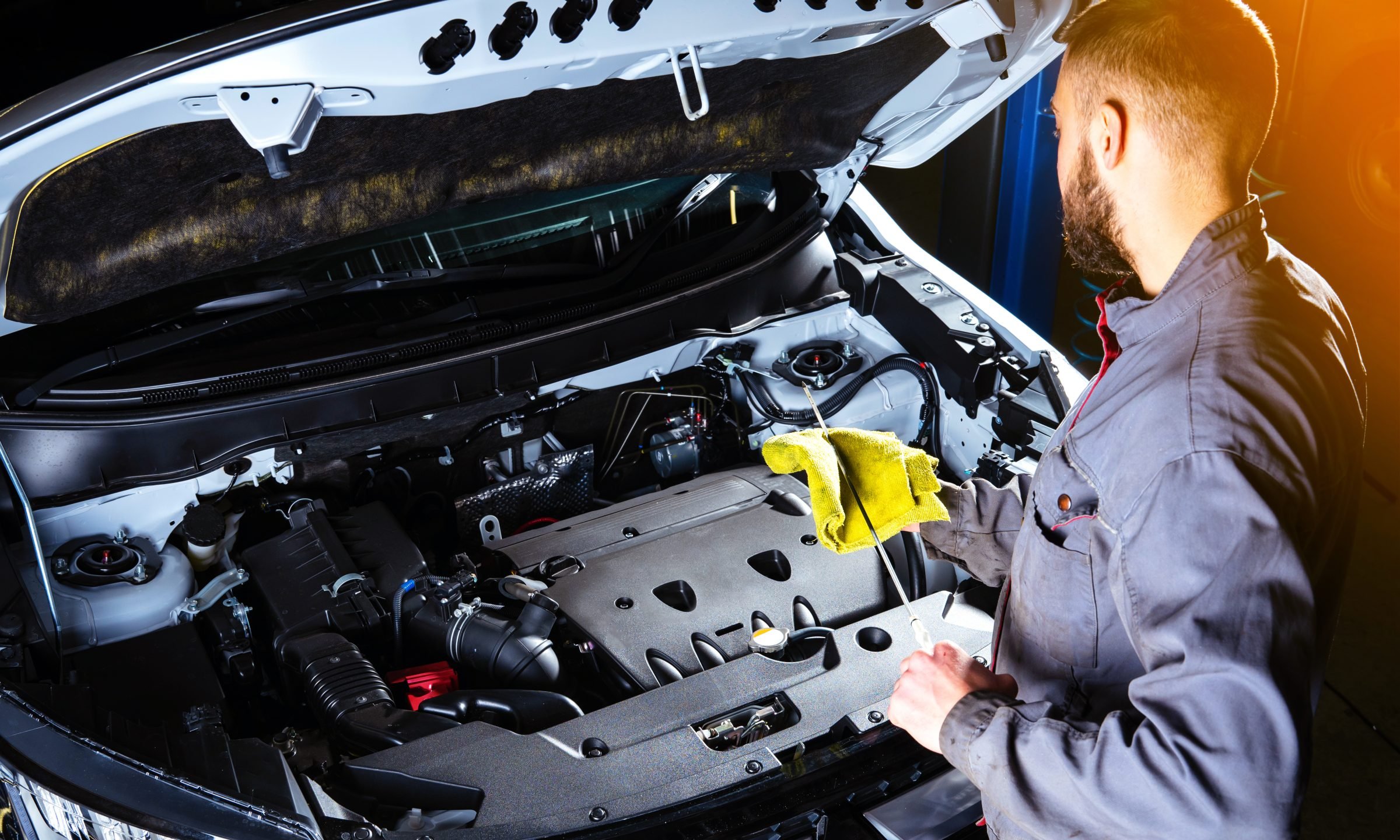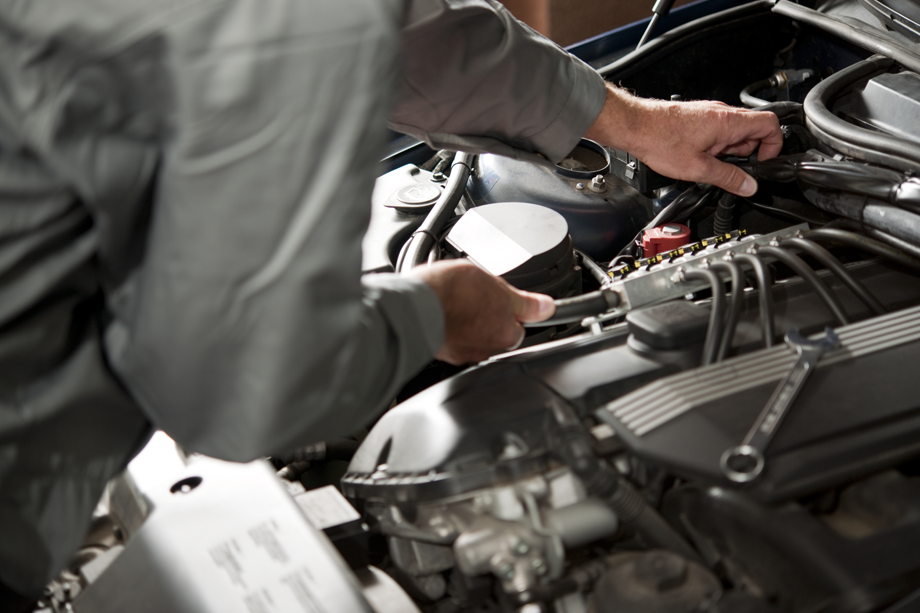All Categories
Featured
One of the most critical elements of vehicle treatment is examining and preserving your vehicle's liquids. Fluids are necessary for the appropriate performance of numerous vehicle systems, and overlooking them can lead to serious issues that may impact both the efficiency and long life of your cars and truck.
![]()
![]()
How to Check and Preserve Your Vehicle's Fluids. Read the Owner's Guidebook: Your car's proprietor's guidebook provides particular guidelines for checking and maintaining various liquids. Follow the recommended intervals for fluid checks and replacements.
Check Fluid Levels Routinely: Make it a behavior to inspect liquid degrees on a monthly basis, especially eventually trips. Many fluids can be checked easily making use of dipsticks, assesses, or sight glasses.
![]()
Look for Leaks: Evaluate for any type of noticeable leaks around fluid tanks, tubes, and under the vehicle. Dripping liquids can be an indication of used pipes or seals that need attention.
Utilize the Right Fluids: Constantly use the manufacturer-recommended liquids for your vehicle. Using the incorrect kind of fluid can create damages and may invalidate your service warranty.
Adjustment Fluids When Required: With time, fluids deteriorate and lose their efficiency. Follow your vehicle's service timetable for fluid changes to make certain that your car continues to run efficiently.
Verdict. Keeping the best degrees and quality of your automobile's fluids is critical for its general health and efficiency. Engine oil, transmission liquid, coolant, brake fluid, power guiding fluid, and windscreen washing machine fluid all play important roles in keeping your cars and truck running smoothly. On a regular basis checking and maintaining these fluids assists protect against expensive fixings, makes certain ideal performance, and enhances safety and security. By making liquid checks component of your regular upkeep regimen, you can prolong the life of your car and appreciate a much safer, more reliable driving experience.
- Engine Oil: The Lifeblood of Your Engine. Engine oil is one of the most crucial fluids in your lorry, as it oils the engine's moving parts, decreases rubbing, and assists manage temperature. In time, engine oil breaks down and ends up being much less efficient, which can lead to enhanced deterioration on engine parts. Routinely examining the oil degree and changing it according to the producer's recommended timetable is vital to avoid engine damage. Reduced or dirty oil can trigger your engine to get too hot, potentially causing pricey fixings or also engine failure.

- Transmission Fluid: Making Certain Smooth Equipment Shifts. Like engine oil, transmission fluid can break down over time, leading to sliding equipments, harsh shifts, and inadequate fuel effectiveness. Routinely examining and altering your transmission liquid helps preserve smooth transmission operation, lowers the risk of transmission damage, and improves the lorry's overall performance.
- Coolant/Antifreeze: Maintaining the Engine Cool. Coolant (or antifreeze) is an essential liquid that prevents your engine from overheating by controling its temperature. It distributes with the engine, absorbing excess warmth and lugging it to the radiator to be cooled off. Coolant also protects against the engine from cold in chilly climate, thus the term "antifreeze." In time, coolant can become infected or shed its efficiency, leading to engine getting too hot and prospective damages. Ensuring that your car has the ideal level and focus of coolant can help protect against getting too hot, reduce the danger of engine damage, and extend the life of your car.
- Brake Fluid: Essential for Safety. Brake fluid is essential for the correct operation of your car's stopping system. It moves force from the brake pedal to the brake elements, permitting you to slow down or stop the automobile. Low or contaminated brake liquid can result in poor stopping efficiency, resulting in unsafe scenarios when driving. Frequently checking the brake liquid level and quality, and changing it when needed, assists make sure that your vehicle's braking system works as it should. If you observe a decrease in stopping responsiveness or a soft brake pedal, it might be time to inspect the brake liquid.

- Power Guiding Fluid: Smooth Steering Performance. Power steering fluid allows for easier guiding by providing hydraulic pressure to the guiding system. Without sufficient power guiding liquid, steering can end up being tough and less receptive, potentially making it more challenging to maneuver the vehicle. Leaks or reduced levels of power steering fluid can lead to steering concerns, consisting of yawping sounds or rigid guiding. Frequently examining and maintaining the proper fluid degrees makes sure that your steering remains simple and smooth to regulate, particularly when transforming or parking.
- Windshield Washing Machine Liquid: Clear Vision for Safe Driving. While it might appear less critical than engine or brake fluid, windshield washing machine fluid plays a vital duty in guaranteeing clear presence while driving. This liquid is in charge of cleaning your windshield when dust, dirt, or insects accumulate, especially throughout lengthy drives. Keeping the windscreen washer fluid at an ample degree aids ensure that your windscreen stays tidy, specifically in adverse climate conditions, which adds to more secure driving.
How to Check and Preserve Your Vehicle's Fluids. Read the Owner's Guidebook: Your car's proprietor's guidebook provides particular guidelines for checking and maintaining various liquids. Follow the recommended intervals for fluid checks and replacements.
Check Fluid Levels Routinely: Make it a behavior to inspect liquid degrees on a monthly basis, especially eventually trips. Many fluids can be checked easily making use of dipsticks, assesses, or sight glasses.

Look for Leaks: Evaluate for any type of noticeable leaks around fluid tanks, tubes, and under the vehicle. Dripping liquids can be an indication of used pipes or seals that need attention.
Utilize the Right Fluids: Constantly use the manufacturer-recommended liquids for your vehicle. Using the incorrect kind of fluid can create damages and may invalidate your service warranty.
Adjustment Fluids When Required: With time, fluids deteriorate and lose their efficiency. Follow your vehicle's service timetable for fluid changes to make certain that your car continues to run efficiently.
Verdict. Keeping the best degrees and quality of your automobile's fluids is critical for its general health and efficiency. Engine oil, transmission liquid, coolant, brake fluid, power guiding fluid, and windscreen washing machine fluid all play important roles in keeping your cars and truck running smoothly. On a regular basis checking and maintaining these fluids assists protect against expensive fixings, makes certain ideal performance, and enhances safety and security. By making liquid checks component of your regular upkeep regimen, you can prolong the life of your car and appreciate a much safer, more reliable driving experience.
Latest Posts
Montclare Auto Repair: Your Local Specialist for Professional Engine & Brake Work
Published Apr 19, 25
2 min read
Unlock Greater Profits with WyHy Money Market Accounts
Published Apr 19, 25
1 min read
Specials & Discounts: Enjoy Deals on Car Repairs at Montclare Auto Repair
Published Apr 19, 25
2 min read
More
Latest Posts
Montclare Auto Repair: Your Local Specialist for Professional Engine & Brake Work
Published Apr 19, 25
2 min read
Unlock Greater Profits with WyHy Money Market Accounts
Published Apr 19, 25
1 min read
Specials & Discounts: Enjoy Deals on Car Repairs at Montclare Auto Repair
Published Apr 19, 25
2 min read